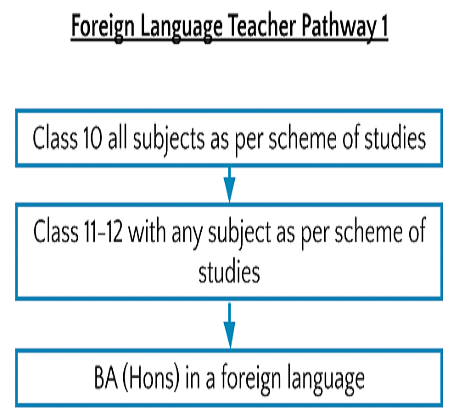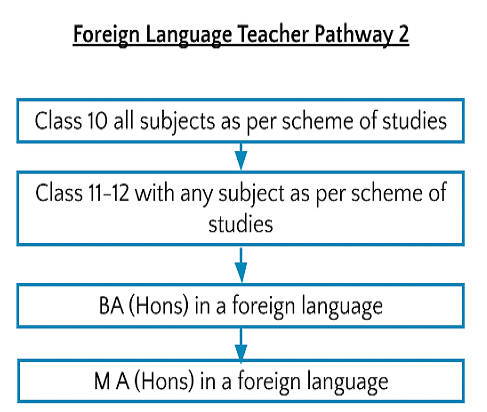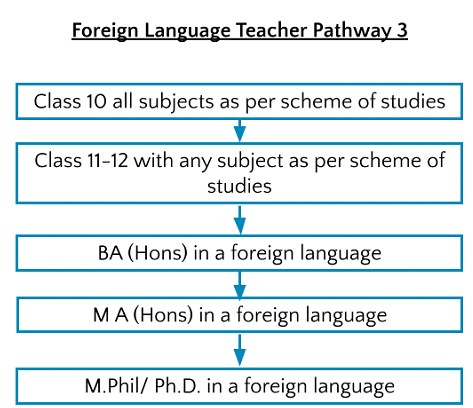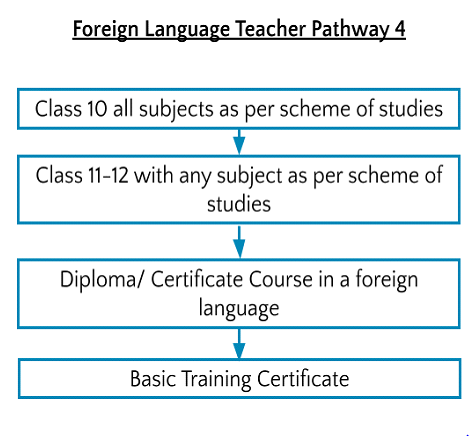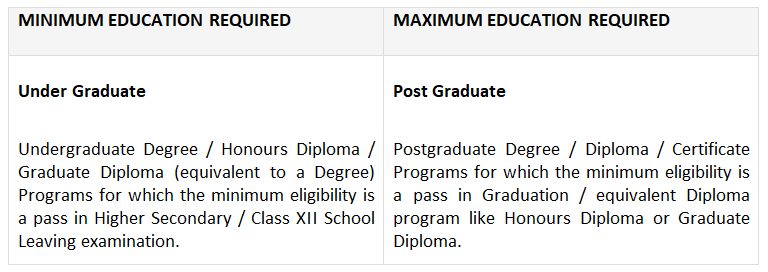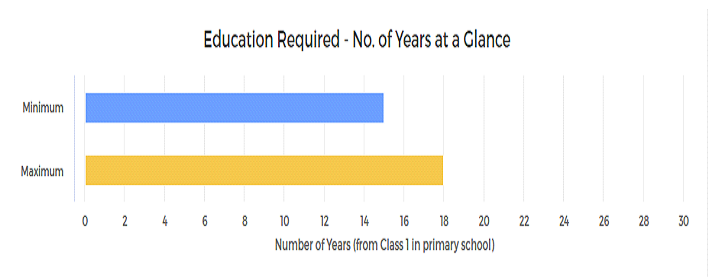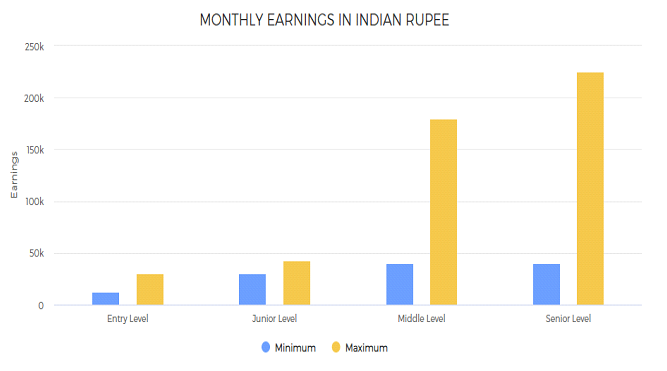Foreign Language Teacher
Entry Level Qualification
10
Career Fields
Education & Teaching
For Specially Abled







 ,
,
Career Entrance Exam
About Career
PARTICULARS | DESCRIPTION |
Name | Foreign Language Teacher |
Purpose | Helping Them Improve Their Speaking |
Career Field | Education & Teaching |
Required Entrance Exam | No Entrance Exam |
Average Salary | 150000 - 400000 Rs. Per Year |
Companies For You | Berlitz, EF Education First, Inlingua & Many More |
Who is Eligible | Class 10th Pass |
Foreign language teachers help students in learning foreign languages, straight from teaching them how to write it, to teaching them to speak and understand the language fluently. When teaching a new language, you will be focusing on different aspects such as speaking (pronunciation), writing (grammar and vocabulary), reading (speed and understanding abilities), listening comprehension and communication etiquettes.
Foreign language teachers generally break their curriculum into different levels and sublevels of learning, and each level focuses on the skills mentioned above. Each student has to pass the level exam and only then can they move on to the next. As they upgrade to the next level, the grade of difficulty increases.
As a foreign language teacher, you must have excellent command over the language you’re teaching in, as well as the language you’re teaching. You will be required to have excellent communication skills to make sure your students understand you clearly.
Students of different age groups (children and young adults, and adults) have different ways of learning, and you, as a teacher, must modify your teaching methods accordingly.
Key roles and responsibilities
Following are your key roles and responsibilities as a foreign language teacher:
1. Introducing the new language to them by telling them a little about the origin of the language, the culture of the people and the country.
2. Teaching them how first to write the text of the language, and then slowly teaching them how to read and write basic words and sentences.
3. Making students interact in class to help them learn to speak. You can start with teaching those basic words that they use in their daily lives and slowly progress to short sentences.
4. Helping them improve their speaking, listening, reading and writing skills in the new language by regularly giving them homework and practice material.
5. Creating class-wise lesson and study plans as well as checking students’ homework.
6. Conducting tests and keeping a check on the progress of each student and providing feedback to help them improve.
7. Organizing events related to the culture and language lessons such as introducing students to foreign movies, music, cuisines, types of literature, etc.
8. Giving practice techniques and exercises for students to maintain their fluency even after they finish the course.
Career Entry Pathway
Class 10 all subjects as per scheme of studies - Class 11-12 with any subject as per scheme of studies - BA (Hons) in a foreign language.
After Class 11-12 with any subject as per scheme of studies, you can do a Bachelor of Arts Honours degree in the foreign language you want to teach. You will be required to clear the entrance exam before studying the degree course.
Class 10 all subjects as per scheme of studies - Class 11-12 with any subject as per scheme of studies - BA (Hons) in a foreign language - M.A. in a foreign language.
After Class 11-12 with any subject as per scheme of studies, you can do a Bachelor of Arts Honours degree in the foreign language you want to teach. For higher education, you can do a Master’s of Arts degree in that foreign language.
Class 10 all subjects as per scheme of studies - Class 11-12 with any subject as per scheme of studies - BA (Hons) in a foreign language - M.A. in a foreign language - M.Phil / PhD in a foreign language.
After Class 11-12 with any subject as per scheme of studies, you can do a Bachelor of Arts Honours degree in the foreign language and a Master’s of Arts degree in the same. You can further study for an M.Phil. / PhD in a foreign language.
Class 10 all subjects as per scheme of studies - Class 11-12 with any subject as per scheme of studies- Diploma/Certificate course in a foreign language - Basic Training Certificate.
After Class 11-12 with any subject as per scheme of studies, you can do a Diploma/Certificate course in foreign language and follow that with a Basic Training Certificate.
Required Qualification & Competencies
To become a Foreign Language Teacher, you will be required to become a specialist in the language and therefore it is better that you start studying the language of your choice at least from the undergraduate level and obtain a Master’s degree. Alternatively, you can also learn a language through different levels from a foreign language training institution. After your Bachelor degree in the language of your choice, you can also do a Master’s degree of the postgraduate diploma in Teaching of a Foreign Language. You can choose your option from many languages, some of those are:
1. Afrikaans
2. Arabic
3. Bahasa
4. Cantonese
5. Catalan
6. Chinese
7. Dutch
8. Finnish
9. French
10. German
11. Greek
12. Italian
13. Japanese
14. Korean
15. Latin
16. Portuguese
17. Russian
18. Spanish
COMPETENCIES REQUIRED
Interests
1. Social: You should have interests for Social Occupations. Social occupations involve helping or assisting others; these involve working with and communicating with people to provide various services; these may involve educating and advising others.
2. Artistic: You should have interests for Artistic Occupations. Artistic occupations mostly involve working with creative ideas, art and designs. These occupations involve abstract or conceptual thinking, creative self-expression and often do not follow any set processes or rules for getting things done.
3. Enterprising: You should have interests for Enterprising Occupations. Enterprising occupations involve taking initiatives, initiating actions, and planning to achieve goals, often business goals. These involve gathering resources and leading people to get things done. These require decision making, risk taking and action orientation.
Abilities
1. Abstract Reasoning: The ability to understand ideas which are not expressed in words or numbers; the ability to understand concepts which are not clearly expressed verbally or otherwise.
2. Articulation: The ability to speak clearly so others can understand you.
3. Deductive Reasoning: The ability to apply general rules and common logic to specific problems to produce answers that are logical and make sense. For example, understanding the reasons behind an event or a situation using general rules and common logic.
4. Emotional Intelligence: The ability to understand your own and others' emotions and feelings; empathy for others; adjusting your behaviour or self-control and self-regulation according to others' emptions and situations.
5. Fluency of Ideas: The ability to come up with a number of ideas about a topic (the number of ideas is important, not their quality, correctness, or creativity).
6. Inter-Personal: The ability to build and maintain good relationships with others at workplaces and elsewhere.
7. Oral Comprehension: The ability to listen to and understand information and ideas presented through spoken words and sentences.
8. Oral Expression: The ability to communicate information and ideas in speaking so others will understand.
9. Verbal Reasoning: The ability to think and reason with words; the ability to reason out ideas expressed in words.
10. Written Comprehension: The ability to read and understand information and ideas presented in writing.
11. Written Expression: The ability to communicate information and ideas in writing so others will understand.
Knowledge
1. Education and Training: Knowledge of various principles and methods of developing training or teaching curriculum, design of instructional methods, developing course materials, teaching and giving instruction individuals and groups.
Skills
2. Active Learning: Focused and continuous learning from various sources of information, observation and otherwise for application in getting work done.
3. Active Listening: Giving full attention to what other people are saying, understanding the points being made by others, asking questions, etc.
4. Coordination: Skills in working together with other people to get things done.
5. Critical Thinking: Skills in analysis of complex situations, using of logic and reasoning to understand the situations and take appropriate actions or make interpretations and inferences.
6. Instruction: Skills in training others how to do something.
7. Judgment and Decision Making: Skills in considering pros and cons of various decision alternatives; considering costs and benefits; taking appropriate and suitable decisions.
8. Public Speaking: Talking effectively to a large group of people or an audience or addressing public at large in different settings such as conferences, seminars, meetings, etc.
9. Reading Comprehension: Skills in understanding written sentences and paragraphs in work related documents.
10. Service Orientation: Skills in or keen interest to help and assist people.
11. Teaching: Skills in teaching and educating others about various academic and applied subjects across different academic fields.
Personality
1. You are always or mostly organised in your day-to-day life and activities.
2. You are always or mostly careful about your actions and behaviour.
3. You are always or mostly disciplined in your action and behaviour.
4. You are always or mostly a soft-hearted person.
5. You always or mostly trust others.
6. You are always or mostly helpful to others.
7. You are always calm or generally remain calm in most situations.
8. You are always or mostly caring, supportive, sympathetic and kind to others.
9. You are imaginative sometimes.
10. You act independently sometimes but do not do so in some other times.
11. You are friendly and outgoing sometimes, but not always. You prefer company of people sometimes but not always.
12. You always or mostly prefer to stick within a routine or carry out routine and repetitive activities.
Career - Job Opportunities & Profiles
As a Foreign Language teacher, you may get job opportunities in:
1. Schools which offer foreign languages as part of their curriculum
2. In various institutes offering foreign language courses
3. In universities and colleges offering foreign languages as subjects in undergraduate and post graduate levels
4. Corporate organisations which have overseas businesses or serve foreign clients
Work environment
As a foreign language teacher, you will constantly work on expanding your knowledge. Your job will involve a lot of reading, be it to find new teaching material or reviewing what your students write for tests and exams.
This field demands a lot of patience as things in a classroom may sometimes get out of hand if students do not behave. Young students have a lot of energy, and it is up to you as a teacher to be able to direct that energy and enthusiasm productively in class.
A classroom is for learning, and you will have the liberty to bring out your creative teaching style (while sticking to the curriculum).
You will work during school hours and may have multiple teaching sessions a day. If you are self-employed, you can set your own working hours, which will mostly be after school or college hours. Either way, your job will involve going through a lot of paperwork, reading new literature and teaching books as well as planning study lessons for each class you conduct.
CAREER GROWTH
If you work as a professor at a college or university, you can start working as an assistant professor. After gaining some work experience, you can work as an associate professor, and then as a professor. Professors can also get administrative positions such as Director/Dean/Vice Chancellor, etc.
You can also start your own private classes or join recognized institutes that teach foreign languages. Some corporate companies approach professionals too to train their employees for basic interaction skills in a foreign language.
Salary Offered
1. If you start working at another language training institute, you can earn a salary of Rs. 12,500 - 30,000 per month. The salary can also vary depending on the number of classes you conduct per day.
2. If you start working with a corporate company as a trainer or a language specialist with 0-2 years of experience, you can earn a salary of Rs. 30,000 - 43,000 per month.
3. With 3-8 years of experience at a training institute, you can earn Rs. 500 - 800 per session.
4. With 3-8 years of experience, you can work with a corporate company as a consultant and earn a salary of Rs. 40,000 - 1, 00,000 per month.
5. As an assistant professor, you can earn Rs. 55,000 - 60,000 per month. As an associate professor, you can earn Rs. 1.20,000 - 1.80,000 per month. As a professor, you can get a monthly salary of Rs. 1, 40,000 - 2, 25,000 at a university/college
MONTHLY EARNINGS IN INDIAN RUPEE
Work Activities
1. Addressing grievances and resolving conflicts: Handling complaints and grievance to resolve; resolving conflicts among co-workers or others at the workplace or outside in relation to your work.
2. Communicating with co-workers and others: Communicating with people in writing, verbally or otherwise inside your workplace and various other people who have professional relationships with your place of work including vendors, government officials, etc. or with people at large.
3. Decision making and problem solving: Analysis of data and information; evaluation of alternative decisions and results of decisions; taking the right decisions and solving problems.
4. Developing and maintaining inter-personal relationships: Developing professional relationships with co-workers and others outside organisations and maintaining good relationships.
5. Getting Information and learning: Observing, hearing, reading, using computers, or otherwise obtaining information and learning from it.
6. Managing and supervising: Manging and supervising work of others; setting goals; giving instructions; monitoring work performance, etc.
7. Providing advices and consultation to others: Giving advices or consultation to others about various issues, conceptual matters, know-hows, scientific matters, products or services.
8. Training and teaching: Understanding educational and training needs of others, developing training programs and educational programs, conducting training programs, teaching and instructing others.
9. Updating and using relevant knowledge: Keeping updated with the latest knowledge relevant to your fields of work and use of the relevant knowledge in getting things done.
10. Using computers for work: Using computers for day-to-day office work; using computer software for various applications in day-to-day professional work; entering data and process information; for writing.
Future Prospects
India has the world’s largest population of about 500 million in the age bracket of 5-24 years, and this provides a great opportunity for the education sector. The education sector in India is estimated at US$ 91.7 billion in FY18 and is expected to reach US$ 101.1 billion in FY19.
Moreover, availability of English speaking tech-educated talent, democratic governance and a strong legal and intellectual property protection framework are enablers for world-class product development,
With globalization growing at a rapid rate, it has become essential for students and professionals to learn different languages, be it for students going abroad to study, or businessmen going abroad for business trips. With a country growing at such a fast rate, a skill like this is essential.
FUTURE PROSPECTS AT A GLANCE


